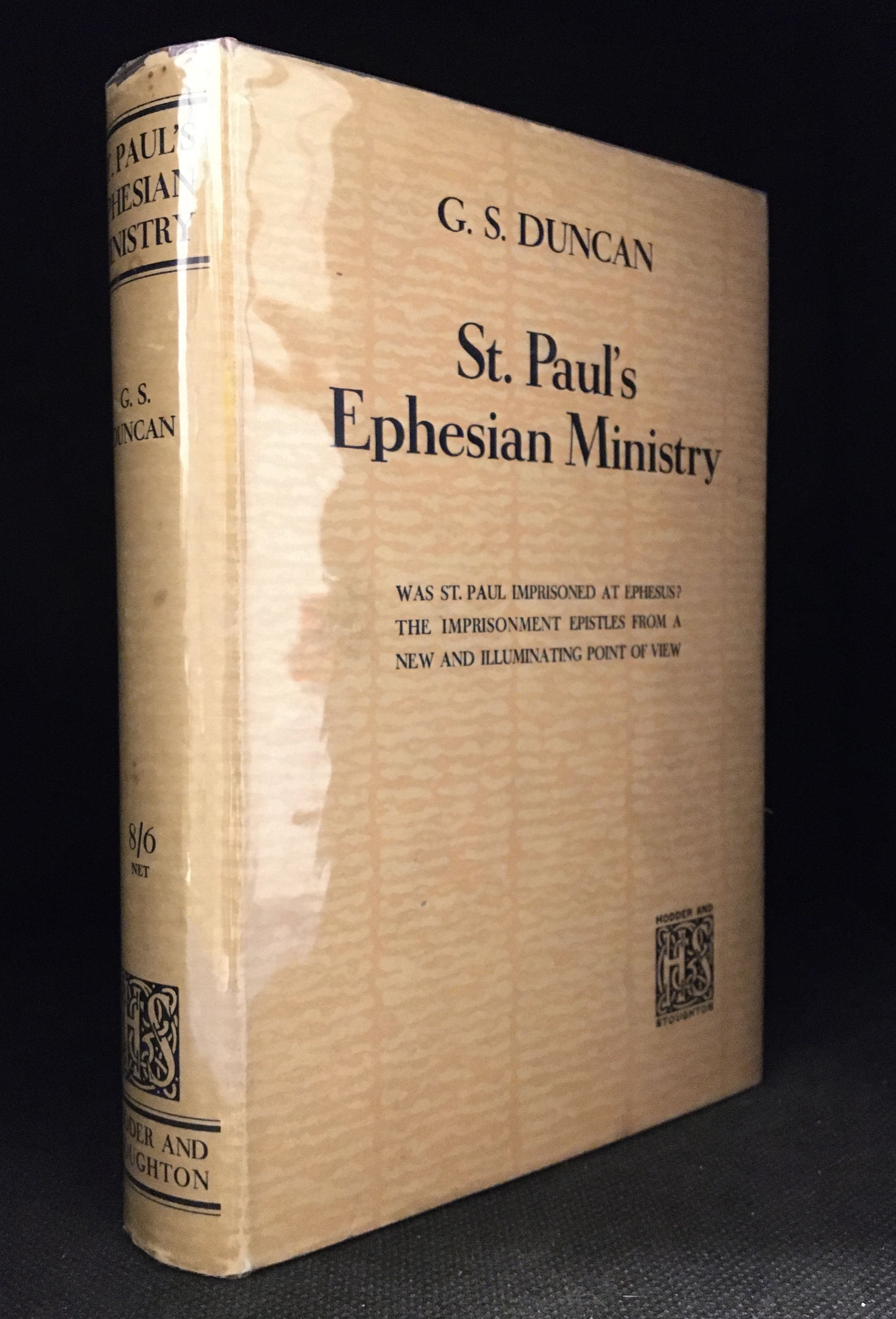I was hoping to read a full account of Paul in Ephesus, but this book is only that in a small sense. Duncan's main goal, it seems, it to prove that Paul was imprisoned for much of his time in Ephesus. It's an intriguing thesis. The argument allows Duncan to reposition Paul's prison epistles by several years. Many scholars claim most of those epistles were written by a person writing in the name of Paul or that they were written from Rome. There is some argument that some of them could be written from Caesarea. Duncan disposes with all those possibilities and places them all within Paul's three-year stint to the city (he doesn't really address the possiblity of a post-Roman stay in Ephesus). In part, he makes his point by looking at the minor characters in the letters, the people Paul mentions in the greetings and closings, the Tituses, Timothies, and Demases.
The rest of the book explores the implications of this for what they say about Paul's ministry and forges a chronology that Duncan usefully summarizes in a timeline at the end. But Duncan does not stop there; he claims also that the pastoral epistles were written from Ephesus during this period. What starts as an intriguing idea becomes more and more speculative as Duncan gets deeper into the text, and while he had me in the first third of the book, his continuing discussion of the topic actually made me feel like his claims were likely incorrect, as just how many problems arise with this timeline becomes apparent. Although he is right to note that Acts is not exhaustive about Paul's doings, Duncan seems to need to add more and more to that period such that it seems almost too much.
Were Duncan correct, however, he is correct to note that it would be truly revolutionary, since we would know almost nothing about his later ministry or his time in Rome (and there would certainly be political reasons that Rome would have claimed such letters for itself).







No comments:
Post a Comment